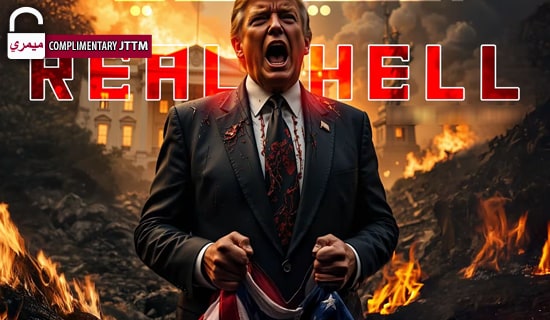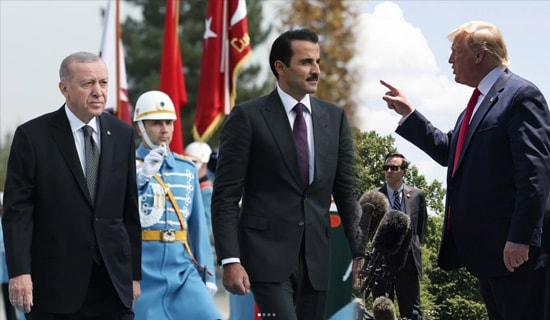In a May 19, 2011 op-ed in the London daily Al-Sharq Al-Awsat, titled "Where Are the Founding Fathers of the 'Arab Spring?'" Adel Al-Toraifi explains that despite the much-acclaimed "Arab Spring," there is no "genuine change in the ideas or characters of the region." He adds, "The 'Arab Spring' has no founding fathers – because [it] is not based on progressive, enlightened thought," and concludes by quoting Thomas Jefferson.
According to the paper, Al-Toraifi is editor-in-chief of the Arab magazine Al-Majalla.
Following is the full text of the article:[1]
"We Are Not Facing a Genuine Change in the Ideas or Characters of the Region"
"Is there truly an 'Arab Spring,' or is there in fact a conflict internally against the authorities, and externally between the countries that we consider influential in the regional balance of power?
"The truth lies between this and that. There is no doubt that there has been a superficial transformation within the actual shape of government, its symbols, and its main pillars – in other words there has been a change of leaders, without there being any ideological or social changes affecting the citizens and the wider culture of governance in the region.
"Strong popular uprisings are still being staged across Arab cities and districts, and a state of congestion and rebellion prevails amongst a broad category of the youth generation. Yet part of this congestion and rage can be attributed to the economic situation, especially with soaring prices of foodstuffs since 2007, and worsening unemployment since 2008. The congestion can also be attributed to the stagnant situation in a number of Arab societies, with regards to reform, political participation, corruption and the total exclusion of the opposition from government.
"We should also notice that we have experienced some sort of disguised military coup d'etat in Tunisia, Egypt and Libya, where the army, or parts of it, have seized the initiative and dissociated themselves from the head of the state. Perhaps this explains why the Syrian uprising is stuttering, because it can be considered civil strife [without military support] in the face of an imposing regime, indeed more violent than all its predecessors.
"In Yemen as well, tribal and sectarian alliances have played a significant role in reaching the current impasse between the president and his opponents, at least so far.
"However, the plain truth is that we are not facing a genuine change in the ideas or characters of the region, in what has been termed the 'Arab Spring.' There are no 'Founding Fathers,' nor is there an intellectual or cultural elite with a realistic project to change the ruling regime, raise the political awareness of the masses, or achieve the desired regional balance of power.
"David Ignatius once wrote about those whom he termed 'The Founding Fathers of the Egyptian Revolution,' such as [then-Arab League secretary-general] Amr Musa, [1999 Nobel Prize laureate for chemistry Egyptian-American] Ahmed Zewail and [Egyptian billionaire] Najib Sawirus (Washington Post, 14 April).
"With the exception of Sawirus, a businessman with a sense of initiative, the other two men have nothing to do with the notion of change in Egypt. Zewail is an American scientist who was awarded the Order of Merit by [Egyptian president Hosni] Mubarak, whereas Musa was a pillar of the former regime, and has since sought to exploit the crisis after he was certain that the Mubarak regime would fall.
"These (hypothetical) Founding Fathers have no new political awareness, unless we consider Amr Musa's public and contradictory statements as awareness, or a new vision for the region."
"The Traditional Political Powers... Have No Intention of Implementing the Change Required In Our Region"
"A clear attempt is being made to portray the popular uprisings witnessed by some Arab states as 'revolutions' – which will entail a change in the way of thinking and the nature of politics as we know it.
"Some described what is happening as a democratic 'revolution' against despotic and authoritarian rule, yet reality shows that there are neither ideas nor political or intellectual elites who can lead the process of change towards a better future for the region. Rather, the traditional political powers and social dignitaries are attempting to ride the wave of change, although, as we can see, they have no intention to implement the change required in our region.
"In more than one country, some of these political and religious figures at the forefront of the scene have rushed to manipulate public issues and causes, with the aim of achieving personal or political gains in the midst of the existing security and political chaos.
"In Egypt, for example, it became clear that the military council has made a deal, albeit silently, with the Muslim Brotherhood, which is preparing to seize control of the scene in the upcoming election, after it proved its strength in the recent referendum on constitutional amendments.
"At the same time, both Iran and Syria have attempted to exploit the current popular uprisings – yet the Iranian attempt was shocked by the strong Gulf intervention in Bahrain, and by the uprising fever extending to Syria. The Iranian elites are trying to aggravate the Bahraini issue by promoting radical voices in the sectarian escalation between the Sunnis and the Shiites.
"We have also seen demonstrations staged for the first time in the Golan Heights, Gaza and the Lebanese border against Israel, all being examples of [Iranian] regional maneuvers.
"Yet Iran still harbors domestic concerns, for the Iranian streets can explode at any time."
'In the... Middle East, Freedom Means Getting Rid Of Foreign Intervention and Regimes that Advocate It'
"In a climate rife with political and emotional agitation, we can distinguish between three levels of the existing crisis in the Middle East:
"The first level is an internal one, where political powers compete to seize control of the political scene. The second is the regional level, where discussions over the distinctions between a 'monarchy' and a populist 'republic' have surfaced. On the third level, the international level, some Western countries – including the U.S. – have placed their hopes on change, in the belief that regime change will result in creating a better environment.
"Such a belief is a misconception based on 'interventionist liberalism,' which portrays the Arab countries as currently undergoing a troubled phase in order to become liberal economies. Those who adopt such an illusionary conviction fail to realize that 'freedom' in the American context does not necessarily mean freedom in the Middle Eastern context. In the former case, freedom means an individual's freedom with regards to economic options, whereas in the latter case of the Middle East, freedom means getting rid of foreign intervention and regimes that advocate it.
"At the regional level, the attempt made by the Gulf countries to include Jordan and Morocco in the GCC is evidence of a serious existing geopolitical vacuum, which has prompted these states to approach one another and cooperate, despite the significant distance between them. This is because the countries in the region, such as Iran, Syria, Iraq – and even Egypt – now have become unreliable to the Gulf states with regards to their foreign policies.
'The 'Arab Spring' Has No Founding Fathers – Because [It] Is Not Based on Progressive, Enlightened Thought'
"Some may ask: What about the role of the Facebook generation? This category is active on the virtual scene, and was once active on the ground. Yet in reality, whether they agree or not, they are influenced by the American model.
"Just as their predecessors in Iran did, at the time of the revolution, the Facebook youths believe that it is possible to establish European-style democracies in the Arab states, without having to adopt Western culture or thought.
"Now, some of these youths will be exploited to serve as a justification for the practices of future populist regimes. Other youths, or the sincere ones amongst them, will find themselves left out of the game, because traditional parties and characters in the region are still more capable of guiding the masses, for one simple reason: the region, whether culturally, intellectually or religiously, still immerses itself in the past, and continues to suffer structural problems in its understanding of the concept of modernity, and the prerequisites for economic and scientific renaissance.
"Therefore, the region can be easily steered and directed using religious and nationalist slogans – such as the Palestinian cause – and populist slogans that oppose monarchies or foreign intervention.
"The 'Arab Spring' has no Founding Fathers, because this 'spring' is not based on progressive, enlightened thought. Rather it occurred, firstly, as a reaction to Arab regimes that have long been involved in corruption, and secondly, this reaction did not reject the slogans and values which these regimes long used to justify their existence in power i.e. the liberation cause, resistance, challenging the West, and conspiracy theories linking everything with Israel and America.
"The most convincing evidence of signs that the 'Arab Spring' may be faltering, in a country like Egypt for example, comes from the fact that those in the interim – and unconstitutional – government are more concerned with pursuing the 'remnants' of the past regime, releasing fundamentalist prisoners, and paying useless regional visits under the slogan of searching for investments.
"This all is happening at the time when Gulf and foreign projects in Egypt are being illegally nationalized. The government is doing this instead of addressing the deplorable economic situation, which we see every day with the lack of wheat and fuel supplies, stagnant public corporations and banks, and the uncontrolled security and sectarian chaos.
"Thomas Jefferson, one of the Founding Fathers of the United States, once said 'The natural progress of things is for liberty to yield and government to gain ground.' Perhaps this is what we lack amidst the current chaotic stage."
[1] Al-Sharq Al-Awsat (London), May 19, 2011. The text has been lightly edited for clarity.




.jpg)